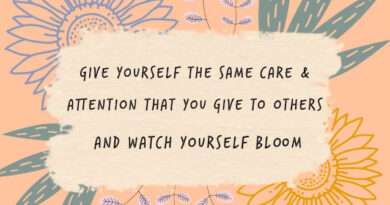Private: The Life Of Freddie Mercury – Life Of Discrimination
By Meghna Mehra
TW: Discrimination, mention of HIV AIDS, homophobia, biphobia, victim-blaming

Born on 5th September 1946, Freddie Mercury was a British singer, songwriter, record producer, and lead vocalist of the rock band Queen and a legend.
One of the most talented vocalists in the history of rock music, Freddie was a queer icon too. The HIV AIDS crisis which was looming over the LGBTQIA+ community affected Freddie too.
Freddie’s life story is the story of every queer person dealing with HIV related discrimination. It is a harsh reality that in the 1980s when a lot of people from the queer community got infected with HIV AIDS, many governments turned their faces from their agony. The harsh truth is, medications and cures weren’t part of government discussions across the globe until the heterosexual community started catching the virus.
In the early 1980s, when an epidemic of HIV first struck a few population centers in the U.S., U.K. and elsewhere, governments mounted almost no public health response.
Doctors initially noticed the virus in groups of people who happened to already be stigmatized for other reasons: men who had sex with men, drug users, and, due to racism, Haitians, and Haitian-Americans.
The prejudiced initial public health response assumed that many of these people were getting the virus because of whatever was already supposedly wrong with them. Gay men, the thinking went, were getting it because of “risky” behaviors like having lots of partners. HIV was not, therefore, a threat to most straight people. The medical profession’s view of HIV was so colored by the idea that it was intrinsically gay that at first, they named the virus “GRID,” an acronym for “gay-related immunodeficiency.”
In 1987, Mercury died way before the introduction of medicines to cope up with the disease. Due to homophobia, he never came out publicly, but the homophobia still haunted his life and his death. The makers of “Bohemian Rhapsody” choose to do queer erasure instead of showing the truth. Often people with HIV are blamed for “catching the disease themselves”, which reeks of insensitivity and apathy. Mercury’s death also led to blaming and furthering the stigma by homophobes.
Even now, in 2020, the LGBTQIA+ community suffer from stigma and discrimination. One of the most common forms of discrimination is the stereotype that the queer community spread HIV and the idea that the community is “evil”, “unnatural”, “full of diseases”, “drug addicts” create a further playground for discrimination.
The discrimination against HIV positive people is disgusting and still persistent in current times. Often, the misconceptions related to HIV are spread widely to discriminate against both queer and HIV Positive people.
HIV is not only transmitted through unsafe sex (both homosexual and heterosexual) but can also be transmitted by accidents, mixing of blood due to some reason, etc. Yet the blame for HIV is often laden on the queer community and sex workers. This stigma creates further problems for HIV positive people too. It makes their lives hard, they find it difficult to access healthcare and live with peace.
Freddie Mercury’s tale is one of the stories about how the community members had to go through discrimination throughout their lives and even after their deaths. This discrimination needs to be stopped and countered.



